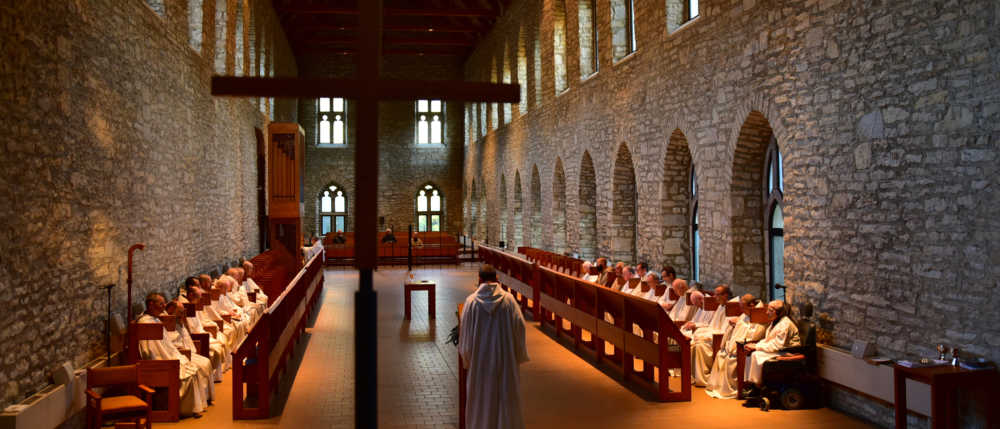Third Sunday in Ordinary Time
“Come, follow me.” Mk 4: 15
The Old Testament is filled with remarkably memorable stories: Adam and Eve, The Flood, Moses and the Red Sea, the Ten Commandments delivered on Mt. Sinai – and dozens more.
But perhaps the most bizarre tale of all is the story of Jonah and the whale. At the very least, it must be considered the most riveting fish story of all time, with the possible exception of Moby Dick.
The Jonah story takes place when one of the most ancient and productive cultures of all time, the Assyrians, reigned supreme. They are the ones responsible, for example, for their invention of some of our most fundamental devices of daily life: the first paved roads, the first postal system, the first magnifying glasses, the first libraries, the first aqueducts, and on and on.
Unfortunately, the Assyrians were also one of the meanest, nastiest, brutish, violent and oppressive cultures in all human history. And the people they picked on the most were the Israelites.
All of this provides a little background to the very abbreviated reading we hear today about God calling out to an Israelite named Jonah. Needless to say, Jonah was more than surprised – even to the point of terror! – when God asks him to perform a daring deed:
Go to Nineveh, the capital city of the Assyrians, and deliver a message of repentance and forgiveness.
Jonah couldn’t believe his ears. How could God possibly ask this of him? Nineveh, he tells himself, is filled with those horrid infidels who have made life a living hell for us. I – little ol’ me – am supposed to go to those people that have persecuted my people horribly and deliver to them a message of forgiveness and peace?
Really?
Understandably, Jonah wants nothing to do with this plan. So, instead of doing as God asks him, Jonah heads to the nearest port, jumps on a ship, and sails … in the opposite direction!
Then the plot thickens.
While Jonah’s on the boat, a terrible storm arises. The all-pagan crew, after spending time in prayer about this terrifying development, decides the cause of the storm is none other than Jonah. They then quickly proceed to rid themselves of this evil spirit causing all the chaos by throwing Jonah overboard … who is then quickly swallowed by a really large fish.
Unbelievably, the story now becomes even more outlandish.
Inside this gigantic fish, Jonah gets down on his knees and prays as fervently as he can, and upon the Lord’s command the fish spits him out on the shore.
Jonah, now chastened by all this turmoil, finally does as the Lord asked him to do in the first place:
Jonah goes to Nineveh where he preaches a message of repentance. And, miracle of miracles, he sees that the horrible, awful, terrible Assyrians are fantastically receptive to his message – so much so, in fact, that the entire city, starting with the king down through the peasants and even their animals, puts on sackcloth as a sign of repentance.
How’s that for the strangest of tales?
But, what’s its point? What are we supposed to take away from it?
Maybe this:
Can you and I forgive our worst enemy? Can you and I be a channel through which God’s boundless love can flow even to those who have hurt us the most? Can you notice that we believers often find ourselves shamed by so-called “heathens” or “secularists” who too many times respond to the indignities of life around them with far more graciousness and generosity and compassion than we do?
Jonah received a “call” from God – and fled as fast as he could.
The gospel of Mark today presents a different scenario: “Come after me” Jesus says. The immediate response? “Then they abandoned their nets and followed him.”
You and I are given a choice in today’s reading: Jonah’s response or the disciples’ response.
But, before you jump to opt for the latter, consider carefully what Jesus is calling us to. Because it’s possibly even more difficult than what Jonah had to endure!
Jesus’ call can best be summed up in one word: metanoia … the Greek word usually translated as “repent,” as in “Repent, and believe the gospel.”
But metanoia’s meaning is far more profound than just repenting. It’s the same word John the Baptist shouted out to the long line of sinners eager to be baptized in the river Jordan. It’s the same word Jesus passionately voiced to get the attention of anyone who would listen.
It’s a word that is best translated as “Change! Change your whole way of thinking and seeing and doing! Change and embrace an entirely different life path.”
Metanoia means there are changes to be made in our lives, new values to be embraced, new eyes with which to see. And we’re to do all of this by trusting in a future made possible by the grace of God breaking into human history in the person of Jesus.
Unfortunately, this is probably not what you and I want to hear. We like things the way they are. We want things to remain the same. We want to stay within our comfort zones. The idea of change scares us, threatens us. Just like it did Jonah. And, so, like him, we are tempted to flee, or simply ignore what we hear.
The problem is that if turning away is our choice, you and I are going to miss out.
We’re going to miss out on miracles in our life. We’re going to miss out on what the disciples discovered when they did follow Jesus: the paralytic picking up his bed and walking, the leper whose life was no longer defined by his disease, the multitude being fed, the lame walking, the blind seeing, the deaf hearing.
And there’s something else we’re going to miss out on. Something that is possibly the greatest miracle of all – the very same one Jonah witnessed with his own unbelieving eyes:
The miracle of receiving the power to be able at last to forgive … even our enemies.
“Come, follow me.”
Ted Wolgamot, Psy.D.
11809194.1
1/18/18





